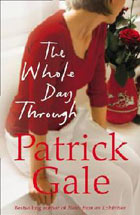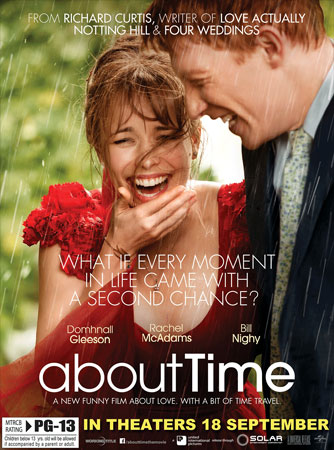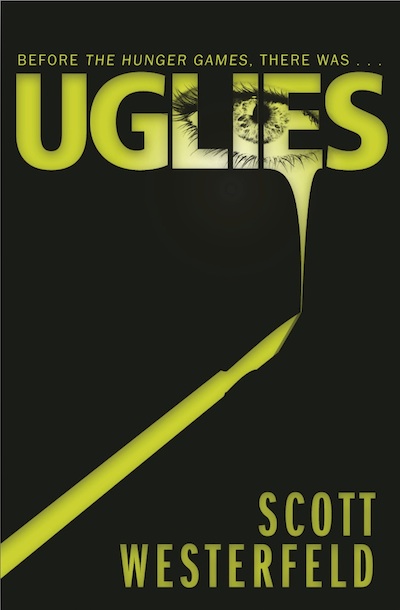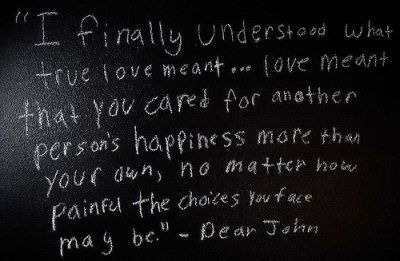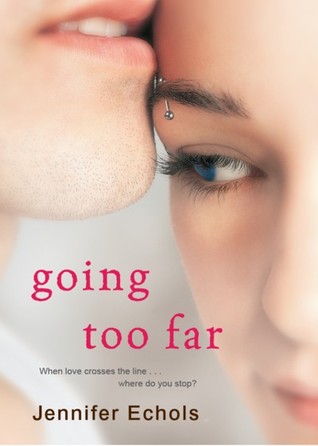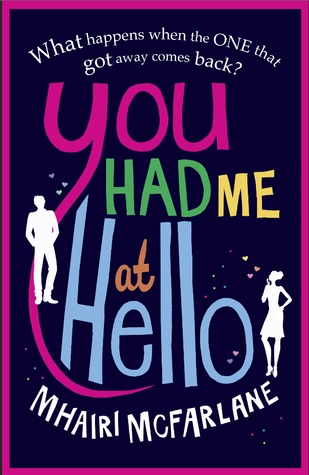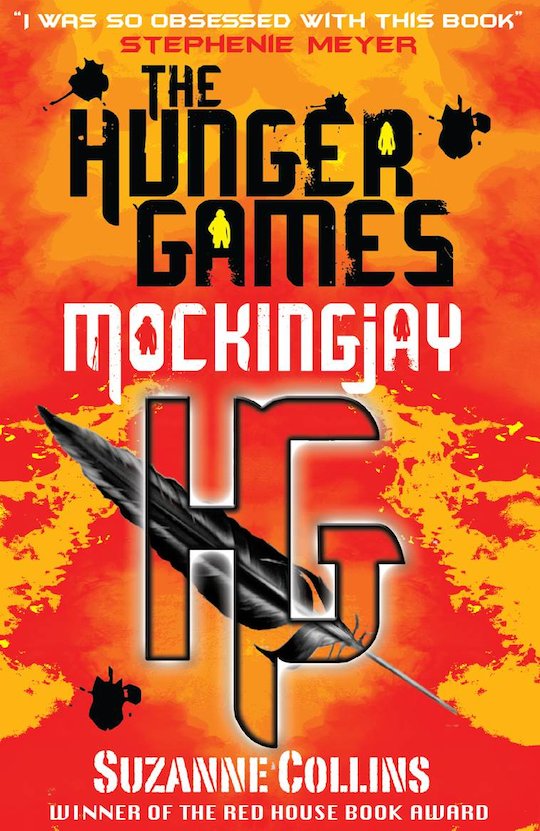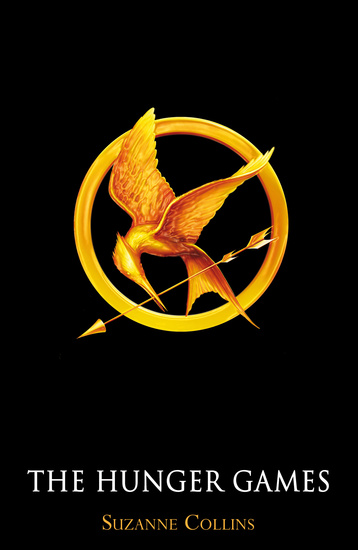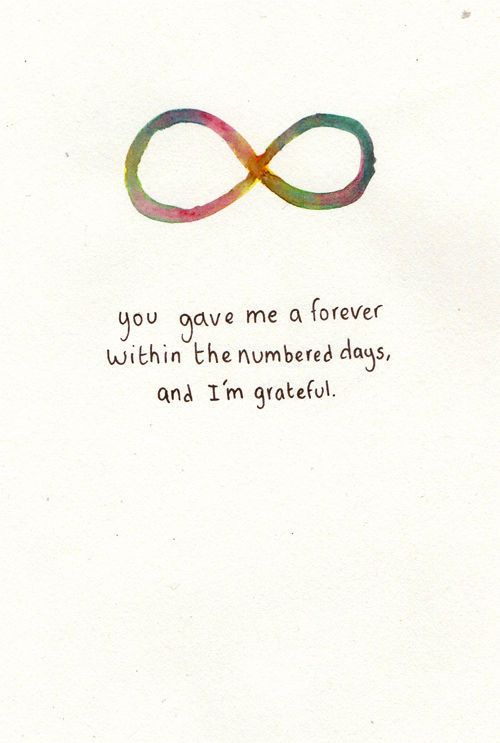Ramblings about books, films, cakes, weight loss and likely some terrible celebrity gossip. Politics is very unlikely.
Showing posts with label romance. Show all posts
Showing posts with label romance. Show all posts
Monday, 28 October 2013
80 Books No.75: The Whole Day Through by Patrick Gale
In the few months since I've read this, I've sort of forgotten about it which can't be a good sign. This is therefore a very short post, mainly to state the fact I did read it. I remember it was about a thwarted couple who met up many years later and seemed to have some sort of affair, but it became a bit hazy to be honest. The premise was it was set on one day, although much of it was spent reflecting upon what had happened on previous days. However, at the end, I suspected that they were actually two different days as it didn't tie up properly. Either that, or I simply didn't understand it. A whole heap of time-shift here which made A Perfectly Good Man look easy to follow. Enjoyable and well-written but beyond that, I have no idea.
Thursday, 19 September 2013
About Time
Richard Curtis has a bad rep. It's true that none of his films really have the hallmarks of a cinematic genius and in some manner resemble a feature-length TV drama. The storylines tend to be quite schmaltzy and in some ways entirely predictable: Hugh Grant (or someone much like him) will always get the girl.
About Time is, he claims, the last film he's going to direct/write. His previous films, particularly Four Weddings and a Funeral, Notting Hill and Love Actually have become quite seminal rom-coms. Where these are also much like a who's who of British cinema, About Time falls down. There are famous actors involved, most notably Bill Nighy, but for the most part it seems to be younger up-and-coming actors - i.e. the Hugh Grants of the future. However, in so many ways, it completely slams the Curtis' other offerings. I'll explain why.
Firstly, the lead characters and actors are very charming. There was no character in this that I wanted to get off the screen, whereas Andie McDowell and Julia Roberts need to do one in their respective films. Rachel MacAdams is one of my favourite underrated actresses: I have loved her since The Notebook and Mean Girls, yet she's never really come good on the fact that she is a really versatile performer. She's also kookily stunning. Domhnall Gleeson was also utterly delightful as Tim, the main character, even if he does sound identical to Hugh Grant. Billy Nighy was a wonderful dad. They all fit their parts really well.
The plot itself is pretty ridiculous: Tim finds out that the men in his family have always had the ability to time travel back through their own timelines. The science of this was massively glossed over and there were a wealth of paradoxes, so in this respect it was less well-plotted than The Time Traveler's Wife (loved the book, disliked the film, despite Rachel MacAdams - she is better in this). For much of the film, it lacked some conflict as the relationship between Tim and Mary, after a shaky start where he almost missed ever meeting her, trotted along nicely. The sub-plot of Tim's disaster-zone of a sister was a little too underplayed for much of the film and I think potentially she could have been either given more to do or removed entirely. However, I see nothing wrong with sometimes watching a film which is just nice; I really enjoyed watching Tim and Mary together for their relationship alone. In fact, I could have watched an entire film which was just that ordinary and lovely.
However, the lack of conflict for a large chunk of the film means than when the thunderbolt hits, it hits hard. I haven't cried in the cinema for a long time. Tears were rolling down my cheeks during the last twenty minutes of this film. I shan't spoil it for anybody who wishes to see it, but it's enough to say that the ordinariness of everything set against the bonkers world of time travel really works here, much as it does in my long-time love Doctor Who. Indeed, this film shares many of the themes of Curtis' episode from 2010, Vincent and the Doctor which talked a lot about ordinary life being utterly extraordinary if looked at the right way. The pain of life is something addressed by both film and episode, and leads into one of my favourite quotations from the TV show:
About Time is essentially a love story, between a man and a woman, and a son and his father. It talked of an ordinary life and how each day can be wonderful if we let it. If it was saccharine and schmaltzy, I don't care. It may not be the world's greatest film, but it has heart and soul and truisms and was frankly lovely. There are not enough lovely things in the world in my opinion. I adored it.
Tuesday, 20 August 2013
80 Books No 66: Uglies by Scott Westerfield
Those of you with eyes and a vague notion of the patterns in my reading can probably guess from simply looking at the book cover why this found itself from Asda's shelves into my trolley and to my house:
1) It references The Hunger Games and I loved The Hunger Games. This had several similarities to Suzanne Collins' trilogy, but as the cover says, actually came first.
2) It's YA in general which we already know I'm a little bit obsessed by.
3) It has a black front cover. Oh how I freaking love a black front cover.
So it was likely to be a hit. The general concept was also quite interesting without all of those elements: a world where judging people based on their looks has been eradicated by ensuring all people are turned 'pretty' at the age of 16 via extensive surgery. The Pretties then inhabit a different area than the Uglies and are subject to less stringent laws. Tally Youngblood is looking forward to becoming a Pretty until she meets Shay and is introduced to the world of the Smoke, an outlaw community where Uglies can live forever with the face they were born with.
Collins has obviously ripped quite a bit from Westerfield's idea here: the female character, the dystopian world, the burgeoning teenage relationships. However, Tally is a different kettle of fish from Katniss Everdeen, at least in some ways. Tally is happy to conform to society's expectations of her at first and only reluctantly challenges the status quo. However, in quite a bold move, Westerfield actually makes her quite unlikeable as a hero as she begins by intending to betray her friends. Yes, she overcomes this, but things still don't work out well. Katniss, whilst being a bit whiny at times, is at least admirable.
The novel dragged at first as it felt like so many other YA dystopian fictions I've read. It was when Tally left the city for the Smoke that it became more engaging and whilst the relationship with David was a little clumsy, the opening preview of Pretties at the end of the novel seemed to develop the story in a promising way. If I get the opportunity I'd probably read the rest of the series.
Uglies has also been optioned for a film, although it's a slow old process. Would be interesting see how exactly they'd cast it!
Wednesday, 14 August 2013
80 Books No.65: Until the Next Time by Kevin Fox
The amount of labels I've added to this post will demonstrate how hard this book was to categorise. I've hesitantly called it 'historical', although I'm not entirely sure 1970s Ireland and the Troubles are really consigned to the past; I've called it 'fantasy' due to the beliefs about and occurrences of reincarnation present throughout the narrative. I added 'thrilled' as Amazon categorises it as such. 'Romance' I'm definite about, as certain as I am that this is indeed a 'book'. This vein of uncertainties dogged me throughout the reading.
Sean Corrigan receives his uncle Michael's journal on his 21st birthday - an uncle he never knew about, if I remember correctly. This drags him from New York to rural Ireland to investigate what happened to his uncle in the 70s. The novel makes use of both Sean's 1996 first person narration and Michael's journal in order to tell the story. The author himself has said he found the dual narrative very easy to use as the voices of the characters were very similar and so was their story. This does, however, make it really rather confusing for the reader, an effect which was partially intended as the novel goes on to explore the idea that all of these characters have lived before and are doomed to keep repeating the same mistakes until they learn they lesson. In my opinion, it got a bit bogged down with this.
The confusing nature of the narrative meant this was quite a slow read for me, as part way through Michael's sections I'd have to remind myself that we were in the 1970s and he was on the run from US police, as opposed to Sean who seemed to have upped and left his life in America on a whim and some odd dreams. To confuse things further, Michael was frequently called 'Mickaleen' which was HIS uncle's (or great-uncles's) nickname - he'd been on the run from Irish nationalists. Then Sean was occasionally called 'Mickaleen' by people who'd known him when he was Michael...
I'd really recommend a flow chart if anybody else wants to try reading this. It was a fairly interesting story, certainly in its more 'historical' sections, although I preferred Sean as a character. The romantic element came in the form of Kate/Erin/whatever her name may now be, and Anne, who was a brilliantly drawn character. Fox really captured Irish conversation for me and the characters leapt off the page when they spoke. Definitely a writer who I would read something else from if it was slightly less convoluted and confusing.
Monday, 29 July 2013
80 Books No.60: Young Bess by Margaret Irwin
Although I always enjoy a historical monarchical novel, it seemed especially fitting in the week the latest heir to the British throne was born. A pretty tenuous link but it meant I could post a completely gratuitous photo from the many I've enjoyed over the last week:
It was only after I'd bought this book that I realised it was not one of those five-a-penny Philippa Gregory copycats that I usually end up reading, but a novel which pre-dated Gregory by quite a way. This was first published in 1944, and even the film of it was made and released before Gregory was even born. This therefore was a bit of a find.
This is set later than the other Tudor court novels I've read this year and is the first in a trilogy. This first part explores the young Elizabeth I's life before her battle for the throne began in earnest. It therefore covers similar ground to The Lady Elizabeth by Alison Weir which I read almost exactly four years ago. There are several fundamental differences to the stories the two writers weave, but they are both grounded in quite a lot of fact.
Young Bess was hard-going at first and I found the first couple of chapters a bit of a chore. However, once the story kicked off properly (basically once Henry VIII was dead and buried) it became far more enjoyable. I was really rooting for Thomas Seymour even though I knew it was never going to end well for him. I always think the sign of a good historical novel is that you still hope for the best even when you know the real story, and Irwin has done that in spades here.
There were some distractions. The focaliser kept shifting, so whilst this was supposed to be about Young Bess, at times were in Edward Seymour's office and miles away from the young princess. Also a distraction, though almost certainly only for me, was that Anne Boleyn was constantly referred to as 'Nan Bullen'. What was better here than in Dunn's The Queen of Subtleties was that Irwin avoided having to rely on diminutives of people's names in order to differentiate between the many Henrys, Annes, Catherines and Edwards. It was just sort of a case of having to suck it up and realise that everybody in Tudor England had the same name.
Which brings me back around to the Royal Baby, in a way. There has been so much media hype around the birth, hype I've willingly bought into because I have a complete couple-crush on the Cambridges. For a whole 30 seconds my hair looked Kate-esque today - then it got out of control again. I looked positively polished.
Anyway, aside from my obsessions, reading all these Tudor novels and comparing them to how the media and general public deal with the monarchy now is fascinating, not least in some of the online posts I've seen about where Prince Philip is at the moment. I've read countless opinions about how he must be more sick than we know and they're keeping us in the dark (not as crazy as it may seem - Irwin claims that Henry VIII was dead for three days before it was announced). These opinions tend to then drift onto 'when the Queen dies' which highlights just how far we've come from the times Gregory, Irwin, Weir and co write about. One of Anne Boleyn's crimes was treason, a charge which could be laid at her door due to the suspicion that Elizabeth was not Henry's daughter, but also because she'd allegedly been heard to talk about 'when the King dies'. To suggest the monarch would die, at some point, in the far distant future, was treason. This seems utterly bonkers to us in the 21st century but was a real crime in Henry VIII's day.
So whilst people may moan about the birth of another generation of the Royal family, at least we can comfort ourselves with the fact that any speculation over the monarch's health won't land our heads on the block anymore.
Another gratuitous picture for good measure:
80 Books No.59: The Pile of Stuff at the Bottom of the Stairs by Christina Hopkinson
It's more chick-lit. But, I like to think, chick-lit beyond the romance and dating and stuff. Here, the story picks up about nine years after the ending of a traditional chick-lit (boy and girl waltz off into the sunset together) and finds boy and girl as dad and mum of two under-fives and struggling. As Mary's irritation with Joel's apparent ineptitude at being a responsible husband and father increases, she decides to keep a list of everything he does that annoys her and use it to help decide whether to divorce him.
Okay, so it's pretty bonkers as a concept: I would imagine few divorces are quite so calculated and methodical in their origin. Also, Mary and Joel are two very un-chick-lit-esque names, perhaps deliberately. And also, it's completely put me off getting married or having children as it just seems so much effort. I spent two hours faffing with my hair today and I'm far too selfish to give that up.
But aside from my own complete self-absorption...
The bonkers concept does translate itself into several other bonkers instances throughout the novel, not least Mary and Joel witnessing their friends in a weird sexual encounter. It goes off at tangents as well, with Mary's lesbian best friend debating whether to have children or not, but ultimately this was a book I actually quite enjoyed, as it was quite witty, warm-hearted and, despite the bonkersness, was rooted in some reality. Mary and Joel weren't perfect and life was quite mundane for them. And why can't we have some average people in a novel for once?
80 Books No.58: While He Was Away by Karen Schrek
It's interesting how many books in recent years have been concerned with the wars in Iraq and Afghanistan in a purely 'Home Front' way. Exploring what happens to families when their loved ones are away at war is an interesting concept, updating all those many many (many) slightly sentimentalised accounts of World War 2 which my mother enjoys reading. Nicholas Sparks especially seems to enjoy writing about war veterans in novels such as The Lucky One and Dear John.
The latter is especially appropriate when reviewing While He Was Away. In Schrek's novel, Penelope (or Penna as she is known though I have no idea how you get from Penelope to that) is facing the prospect of her boyfriend David being away in Iraq for fifteen months on a tour of duty. Once he returns, normal life will resume. However, things may not quite work out like that.
I liked the concept, as I enjoyed Dear John, and I think it's a valuable topic to be tackling, both in writing in general and in YA fiction. The relationship between Penna and David is a little too intense, but endearing. She is far too reliant upon him even before he goes to war, but there is some explanation in her upbringing. It therefore wasn't a complete waste of time.
Schrek introduces a number of different strands into the novel, however, which detract from this simple romance. Penna's relationship with her mother and absent grandmother, for example, is tied into the main narrative, but ultimately doesn't add anything to it really. Likewise, her friendship with David's friend whose name I've temporarily forgotten is utterly pointless - she keeps reminding herself he is David's friend but literally only sees him once or twice, so why would she need to keep reminding herself of that fact? It seemed as though she was going to stray from David, yet she didn't.
The title suggested that things would change a lot While He Was Away, and in some respects they do: Penna gains more friends and semi-fixes her family. However, I was also expecting some reflection upon how David had changed While He Was Away and there was a very small part of that. The novel ends with him still only a few months into his tour of duty, so everything is still only being seen from Penna's point of view via Skype and e-mails. Perhaps a more interesting aspect could have been David's return home and what had happened for him in that time; perhaps Schrek will explore that in a subsequent novel.
Not a terrible book, but I'd actually recommend Dear John, both novel and film, over this one. Cause, you know, it's completely saccharine and cheesy...
... but it has Channing Tatum with his top off. So, total win.
Wednesday, 24 July 2013
80 Books No.56: Janie Face to Face by Caroline B Cooney
You know when you had a really brilliant holiday somewhere and then you go back to try and replicate it and it's never the same? This book is that for me. It's not that I hated it (you know you'd know about it if I hated it) but I was disappointed.
A bit of background would help with this.
Caroline B Cooney novels are a bit of a special thing. As in, something not everybody is ever going to get on board with. Here's a selection of the book covers of her books I have read in the past:
Check out the hair and the high-waisted jeans. Wonder how on earth I ended up with a German version of Don't Blame the Music. Cringe at the dodgy titles. These are 80s-90s YA fiction, completely unashamedly cheesy but endlessly entertaining. I mean endlessly: I must have borrowed Cooney's books from the library on almost a repeat for the best part of two years when I was about twelve or thirteen. I even bought Camp Reunion and Don't Blame the Music off the library when they threw them out: even my local library thought they were outdated.
However, it would be entirely remiss of me to laugh at these novels. Yes, they read a bit clunkily, but they were far from disposable YA chick-lit. In reality, they were quite something else. I was just graduating from pony books by the Pullein-Thompsons (a whole different brand of vintage) and then I came across these, which felt so much more grown-up. The best way I can describe them is a little like The Babysitters' Club, only grittier. In Summer Love/Camp Reunion, girl meets boy and sometimes boy turns out to be a complete let down. The stunningly attractive girl or boy might be nice or not. In Don't Blame the Music, sisters become dangerous to their entire family. This was high-drama and bitter-sweet endings. I was obsessed.
And my obsession was mainly centred around the Janie Johnson series, books I touched upon in a review very recently. This series revolved around Janie, an ordinary girl who recognises her own face on a missing poster and then realises that her parents are not a real family. The novels trace her search for her 'real' parents and the explanation over what happened, as well as her tentative relationships with her long-lost siblings, parents and how her 'adoptive' parents cope with this revelation. Not to mention how her boy-next-door boyfriend supports her - but then completely screws her over. There was a made-for-TV movie which was awful but brilliant at the same time.
Frankly, I LOVED these books.
I was vaguely aware that there were some more books in the series published much more recently, but it was only when I found this at the most recent book sale I attended that I gave it much thought. I've skipped Book 4 and the e-book and gone straight for Book 5, which Cooney is adamant will be the last one. Frankly, it should be.
Here, Janie is at college. Her boy-next-door boyfriend is in her life but they're not together. She's trying to juggle both families, but basically abandoning her now elderly and sick 'adoptive' family. And then a true-crime writer contacts everybody she knows asking for help with writing her story. Interspersed with this story, is what happened to Hannah, her 'adoptive' parents' real daughter and Janie's kidnapper.
This could have had legs. It would have been more interesting to see Janie co-operating with the true-crime writer, than what she actually did - generally paying it no attention whatsoever. Indeed, Janie is largely oblivious to most of what really happens in this novel due to her sudden decision to marry the boy-next-door boyfriend in ten days. It is therefore left to all the other characters to maintain any real link to the original story. Perhaps somebody close to her selling her out would have been fun, although already explored in Book 3. Hannah's narrative could have been more interesting if it was given more time and she was allowed to develop more as a character. Cooney very much kept her as comic-book villain rather than a real threat, something highlighted particularly by the complete lack of a climax to the story.
Also annoying was the time-scale of this series. Book 1 came out mid-90s and the action here was supposed to be set five years after those events. So why did everybody have Facebook, iPads and mobile phones? So much action revolved around these things (sometimes in a very interesting manner, it has to be said) that it jarred with the origins of the series. It was as though Cooney forgot herself. She also forgot herself with some characters. A good proof reader should have picked up that Brian claimed he'd never worn a tuxedo as he never went to prom, but three pages later detailed he didn't need to rent a tux as he already had one from his days in a choir. Shocking continuity.
Ultimately, I'm not sure who this book is aimed at. People like me, who read the originals, are really too old for this book now, but the YA audience are likely never to have heard of the Janie Johnson series.
Also, I don't get the cover.
Please, Cooney, leave this series alone.
80 Books No.55: Going Too Far by Jennifer Echols
I'm going to keep this one quite brief as I'm struggling to say much about it.
Like A Perfectly Good Man, this was a (wait for it) perfectly good book. By that, I don't mean it was perfect: the relationship between Meg and John was too rushed in my opinion and didn't tie in with the blurb. The blurb said that Meg was going to be punished for her (minor) criminal behaviour by having to ride in John's cop car for a week, and that neither of them were really for it. In contrast, John seemed to be very much up for it from the start, and Meg was up for it in a slightly different way, as she immediately developed a crush upon the officer. This lacked real friction for me, and I would have liked to see it all be a bit more snarky and irritable to begin with. Later in the novel, Meg overcame John's anger too quickly as well, as the author geared up for a fairytale ending, which was a bit of a shame as I'd like their characters.
Likewise, there were some obvious moments, or at least obvious if you've ever read any of Nicholas Sparks' novels, specifically A Walk to Remember; this is very similar but with a happier ending and fewer moral issues. However, the chemistry between Meg and John was good and it definitely passed the time.
Tuesday, 23 July 2013
80 Books No.54: You Had Me At Hello by Mhairi McFarlane
You know my assertion way back in March that I don't really get on with chick-lit? Perhaps I should revise that. Admittedly this is only the fourth chick-lit novel I've read this year, and of those four, perhaps only two of them (actually including this one) could be deemed books I genuinely really quite enjoyed. But none of them have been books I've flung across the room in a 'what the hell is this?' kind of fit (unlike Once Upon a Prince which is still making my blood boil). So perhaps me and chick-lit could get on after all.
This one was a pretty standard read: Rachel ditches her fiancé just before the One Who Got Away walks back into her life complete with picture-perfect wife. Lots of angst, some sparky repartee and some mildly comedic moments before coming to a reasonably predictable ending.
However, it stands out as a more superior form of chick-lit than some for the following reasons:
1. It's written for people with a brain. I've read so many chick-lit books that are written using super-basic English as if women can't read complex sentences. The characters are 2D and everything is just geared up in order to describe some cringe-worthy sex scenes. Speaking of which...
2. There are hardly any cringe-worthy sex scenes. There is one sex scene involving the main characters which is actually quite endearing.
3. The characters are quite pleasant and nice. It is a bit Bridget Jones in places, but most chick-lit is influenced by that anyway, so forgivable.
The storyline does swing a bit like a pendulum towards the end as the main characters are unable to make their minds up about anything, a trait which annoys me with real people, but I can overlook in print. It was a quick and mostly enjoyable read.
Saturday, 20 July 2013
80 Books No.52: Girl, Missing by Sophie McKenzie
This is a highly popular YA novel, winning and being nominated for loads of awards in the last few years. Sophie McKenzie is a generally highly respected author for young adults and I've read some stuff by her before; mainly the Medusa Project novels, or at least some of them.
The basic premise of the story is that Lauren knows she is adopted but can't get her parents to tell her anymore than that. After some basic research, she finds a photo of a missing girl from about eleven years ago in America - and somehow decides that she is one and the same. From there, through some very tenuous plot twists and turns, she ends up meeting her birth family.
This storyline is so similar to a series from the 90s known as the Janie Johnson series. There were some differences: Janie discovers that her 'parents' are actually her grandparents, before they all discover she was actually stolen by their daughter. From there she meets her birth family and all the things associated with it. There was also an enjoyably terrible made-for-TV movie in 1995.
I can see why Girl, Missing has so many fans. It is pacey and doesn't let up for a minute. There's an element of romance and the excitement of a thriller. The reader is taken on quite a journey from the start of the novel to the end. My favourite section was when Lauren had met her birth parents and family and was trying to adjust. It would have been nice to have explored these feelings further, something which the Janie Johnson series did brilliantly.
Unfortunately for this book, the main character Lauren was, as her boyfriend remarked, 'one of the most self-obsessed people in existence'. This does change slightly towards the end, but she isn't especially likeable. She jumps to far too many conclusions too quickly, partially as a necessity to keep the plot moving forward. One could argue that this is aimed at young adults and so needs to be sensational and fast-moving, but again, the Janie Johnson series was far superior to this.
Also, this book has two sequels Sister, Missing and Missing Me. In the second, it seems that history repeats itself as Lauren's 'new' sister is kidnapped and put in danger, something which both happened to Lauren originally and also happened to the list in Girl, Missing. Missing Me jumps the shark even further by my assessment of the plot as the sister discovers she and Lauren were conceived by sperm donor - so even Lauren's 'birth father' isn't her birth father - layer after layer of complications construed in order to tell a convoluted story. I could be cynical and say McKenzie is simply cashing in...
My advice: skip this and find Caroline B Cooney's novels instead. More of which in a later blog post.
Thursday, 18 July 2013
80 Books No.51: Once Upon a Prince by Rachel Hauck
A Monster Calls inspired me to high emotion due it its sheer brilliance. There are a lot of books I've felt quite ambivalent about this year and sometimes struggled to write a very engaging post about.
This is not one of those books.
Once Upon a Prince has driven me to high anger. So much so that I was breaking off between reading paragraphs in order to tut, groan, sigh disgustedly or exclaim 'oh for God's sake!' How I got through it in the end is almost beyond me, except I shamelessly skim read the last seventy pages in a desperate desire to move onto something, anything which wasn't this embarrassing mess.
Admittedly the title and premise never promised anything Nobel prize winning. It is, after all, essentially the Julia Stiles film The Prince and Me with slightly older characters and no Ben Miller. Whenever I wonder what happened to Julia Stiles, The Prince and Me should probably be a heavy clue, but I enjoy it for what it is: pure escapism. The storyline is improbable and ridiculous, but somehow manages to be superior to Katie Holmes's First Daughter which shares some similar themes.
So the pretty awful title and premise wouldn't have put me off in themselves. Even the first couple of chapters didn't put me off. The point at which my eyes first rolled up to the heavens was when the prince was revealed as being the prince of Brighton Kingdom. Like, what? Brighton? Had this writer never heard of the place in England or was this some kind of terrible in-joke? Whatever it was, it was horrendous and made me tut every time I came across it.
I read on a bit and then hit the point where almost every page had some reference to how God was guiding Susanna and Nathaniel through things. Now I'm far from anti-religious, but this was just too much. At the moment when Susanna tried to explain to the paparazzi that they hadn't been doing anything naughty in the church overnight but had 'spent the night in worship and prayer', I just about vomited in my own mouth for her sanctimonious stupidity. I mean, they had spent the night in worship and prayer, but this supposedly intelligent woman of twenty-eight was expecting the gutter press to believe this? What planet was she (or the writer) living on?
The careless name dropping of 'William and Kate' on several occasions was pure tackiness. I like the Royal couple as much as anybody but this was cheap and nasty. The author's own assertion at the end that she was inspired to write the story by their wedding puts unfair blame upon them for this travesty of 'literature' and besides, she wasn't inspired by that: she was inspired by 2004's The Prince and Me and needs to realise her ideas are about as original as mine.
And then came the hideous ending to the story, which I won't even apologise for spoiling because this book spoils itself by its own existence. The novel had reminded the reader repeatedly that, even if Susanna could ever open up her heart to Nathaniel properly (which she was finding difficult due to some unknown traumas in childhood), they could never marry as Susanna was American and not Brighton-born. This went on and on and on... until suddenly Nathaniel realised he was now king and could suggest this law was changed - and there was no opposition! Not a single person said 'hang on, you're changing laws to suit yourself and not considering your country which the law was designed to protect and for a generally pretty good if archaic reason'. This is basically how Disney's Aladdin ends, but Aladdin is for children and Once Upon a Prince is for adults, and basically Rachel Hauck needs to have a word with herself and get real.
Contender for worst book of the year. And this seems to be part of a series?! I need to look at this picture to calm my blood pressure. Here's a proper prince.
80 Books No.50: The Summer I Turned Pretty by Jenny Hann
Sarah Dessen, my favourite YA author, endorsed this book and it had the sort of format she'd use, so I thought I'd dip in as it was only £2. The title does suggest something slightly more shallow than you actually get, although not much more, and the theme raised by it (somebody suddenly being noticed by people who've never looked twice before) could have been made more explicit in my opinion.
The story itself was harmless enough: a girl goes to the beach as she does every summer and suddenly all these boys she's ever known start taking an interest. She lost her heart long ago to Conrad, the elder of two brothers, but it's the younger brother, Jeremiah, who has spent time with her in recent years. The premise seemed to be she'd have to choose between them.
However, into this mix they through a third boy whose name sort of escapes me right now because he was seriously badly treated by the girl (who willingly goes by the name Belly - short for Isabella: who does that?!). This sort of distracts the whole focus from the Conrad-Jeremiah dilemma and in fact basically phases Jeremiah out altogether which makes the book generally much less interesting: I wanted brother warfare.
Belly (urgh) is supposed to be a likeable girl, I think, and if the author had played up how she's always felt left out by Conrad, Jeremiah and her brother, she might have been more appealing. However, her constant swinging between the two boys (and basically ignoring Jeremiah) is pretty tedious, especially as Conrad is so moody and has never given her any reason to like him.
The story then becomes more serious and throws all of Belly's (urgh) mundane romantic pursuits into stark relief. There are apparently two sequels to this, and I'm partially intrigued, partially repulsed.
Sunday, 14 July 2013
80 Books No.48: Pretty Little Liars by Sara Shepherd
Oh good grief. If you know me, you'll probably have been bored to tears by my talking about the TV series Pretty Little Liars in the last six months. I've become hooked, and it's so frustrating that season 2 has yet to be released on DVD in this country. I watched season 1 in record time because it's so amazing and pacy and exciting and just frankly SHINY that it has be watched. Nobody in Rosewood is unattractive; nobody is what they seem. It's INCREDIBLE.
So my excitement at finding book one of the original novels in a book sale yesterday was second to none, hence how I read it in about three hours. There was little new here for me as I've already watched the whole series and this probably covers episodes 1-5 at a guess, although not quite in the same order. It was interesting to notice the subtle differences between the two versions: the novel is far less ethnically diverse, with all four 'liars' seemingly mostly Caucasian, whilst in the TV series having a range of backgrounds for the girls. I would also say the TV series perhaps paces itself better as secrets are kept longer, and as the whole series is based upon secrets and lies, that kind of works better than things being more public knowledge as in the novel.
What the novel does do is allow the reader more of an insight into the characters' heads. Aria and Hanna were my favourite characters from the TV show, and continue to be here, but become more human and relatable as Aria struggles to know how to fit into Rosewood again and Hanna struggles with her weight. So far Ali hasn't come across as quite such a bitch as in the TV show, but there's time in the rest of the series.
Still, this is totally filling the void whilst I endlessly click refresh on Amazon waiting for season 2. In the meantime, here's the totally awesome opening from Pretty Little Liars. Remember: two can keep a secret if one of them is dead ;)
Wednesday, 3 July 2013
80 Books No.44: The Hunger Games - Mockingjay by Suzanne Collins
Alas, Collins couldn't keep it going. I think having re-read this, I think even less of Mockingjay than I did before. Which is a real shame because I love the trilogy and this could have been good. I think the main problem is that the story has almost run out of steam - at least, that is, the story that began in The Hunger Games. Suddenly it all becomes bigger, and the really cool concept of teenagers killing each other for entertainment (come on, you knew this was what I really liked!) becomes a mere side product of a gigantic war and I hate war stories; it's why I've sacked off A Song of Fire and Ice.
Also, Katniss becomes such a doormat in this, constantly asleep or drugged or injured whilst everybody else makes decisions for her. Collins also kills off too many characters, although not, conveniently, anybody extremely vital to the story; she builds up or creates characters and then just bumps them off, which means you don't lose anyone you've invested in from book 1, but is a bit manipulative.
I think the film of this could be a bit tedious. We'll have to wait till 2014 to find out.
This is my shortest review, summing up my sheer disappointment in this novel.
80 Books No.43: The Hunger Games - Catching Fire by Suzanne Collins
However, before I explode, on 22nd November, I'm hoping to see The Hunger Games sequel Catching Fire. This re-read of the novel has only re-ignited my excitement for it, for the following reasons:
- the plot is good; I'd forgotten how good. In fact, in some ways it's better than the original because it throws you straight in with issues and character conflicts. The history with Katniss and Peeta means there's even more second-guessing and there's quite a bit more Haymitch, which is brilliant.
- Fennick is a cracking character. I'd forgotten about him too, but I'm excited. He better be hot and charming and live up to the character Collins has created.
- the arena is incredible in this one, so so clever. I loved the arena in the last one, but this one is a whole other level of great.
Aside from the film adaptation, this novel may actually be better written than the original, which is a nice surprise as I'd always remembered the series as deteriorating as it continued, much like the Chaos Walking trilogy did. My next review, however, is a bit of a disappointment...
Watch the trailer before that though
Thursday, 20 June 2013
80 Books No.40: The Hunger Games by Suzanne Collins
This is the first deliberate re-read of the year (I don't count The Way Things Look to Me as there was no intention to re-read that) and for a justifiable reason beyond I just felt like it. This is a contender for being purchased as a class reader at school and I wanted to double check there was enough to do with it; my conclusion is that there is definitely a massive argument for buying it. Hoorah.
Looking back through my blog, was there ever any doubt that I'd really like The Hunger Games? It has a depressing slightly futuristic setting, is aimed at teenagers and has kids killing each other. This pretty much sums up my blog. Suffice to say that I enjoyed this as much as I did the first time around, albeit if it was marginally less page turning as I already knew how it was going to end. In fact, reading it from a teaching perspective allowed me to see a variety of new things, such as how it relates to general dystopian fiction and how it, in some ways, breaks gender stereotypes. The opening pages in particular could be an interesting exploration over when exactly we realise Katniss is female as so much of the opening presents her as fulfilling a traditionally male role within her family and within the novel.
What I also found interesting was reading this in light of having seen the film twice. I thought the film was a really good one in its own right and would happily watch it again (let's see if I'm saying this in four years time when no doubt I'll have been badgered to watch it hundreds of times by students). Given that this was a first-person narration, it managed to convey much of the same feelings without the use of a voiceover. However, Katniss is infinitely more likeable in the novel as you can really get to grips with her feelings. Also, her unwitting double crossing of Peeta (an element which I think could have been developed more across the whole trilogy) is much clearer in the novel and leaves you thinking more positively about her.
I loved this book all over again and I'm dying to teach it next year now.
PS: And hello halfway point! I'm ten days ahead of myself, which is significantly less gained time than I had back in March, but then I wasn't falling asleep on top of the books regularly in March. I'm still pretty pleased with my progress, and I still have August in which to gain time. 80 books is suddenly looking more manageable.
Sunday, 9 June 2013
80 Books No.34: April and Oliver by Tess Callahan
From reading the blurb I thought this was going to be a pretty straightforward novel about two people having an affair behind people's backs. I imagined it something a little like The Way We Were by Elizabeth Noble, which I read last year and was generally unimpressed by. I expected this one would be perhaps a similar story but better written - mainly because the cover looked more serious and less pink.
I was, however, pleasantly surprised. Far from being a tale of illicit love, this was not a love story at all in my opinion. It was a story about passion and desire and danger and excitement and deep feelings and tragedy - but not love. It was essentially a Wuthering Heights set in twentieth century Maine - and anybody who knows me should know that has to be a good thing.
April and Oliver could both have been pretty unsympathetic characters. April was a disaster zone from the word go: falling in and out of unsuitable and abusive relationships, with a dead-end job and living her life from crisis to crisis, she was basically everybody's worst nightmare. In contrast, Oliver seemed to have it all going for him, with his picture-perfect fiancé, high-flying job and big happy family. This would all have made him very easy to hate. Yet Callahan has somehow made both of them endearing and somehow I ended up rooting for them to overcome all their differences and difficulties and be together - even if it screwed over Oliver's fiancé who was perfectly lovely.
The beauty of this book was how truthful it was with regard to emotions and how things really would happen in these circumstances. There was no sugar-coating or sanitising things; this was love and passion in the real world. In this respect, it was less extreme than Bronte's classic, and despite my deep love for that novel, April and Oliver was none the worse off for avoiding becoming too mawkish.
A generally good read.
Tuesday, 23 April 2013
80 Books No.29: Black Swan Rising by Lee Carroll
I bought this because I thought it would have some connection to Swan Lake. It sort of did, very slightly, in as much as black and white swans seemed important in some way (I sort of lost track of those bits). Mostly, however, it was to do with vampires, fairies and the sixteenth century alchemist John Dee. Which, you know, is completely logical.
Falling into a genre apparently known as 'urban fantasy', Black Swan Rising was about Garet (or Margaret dependent upon how you want to be introduced to her) who seems normal on the surface but has a lot more hidden beneath the surface. She finds out that her mother's death in a car accident was far from accidental and that there are more things in heaven and earth than are dreamed of in her philosophy.
Okay, it's essentially Twilight for a slightly older audience (I think; I don't know why but it feels more adult than Stephenie Meyer's novels).
However, this is not all bad. Being pretty much Twilight means you do get some overblown angst, a sexy vampire and a massive fight between good and evil. And the characters here are at least more likeable and perhaps more believable; they're generally quite 'normal' anyway, with, naturally, the exception of the elves, fairies and gnomes which crop up around every street corner in Manhattan. This element I liked, as all of these mystical beings lived their every day lives alongside humans, either as nurses or pawnbrokers or radio DJs. It probably shouldn't have worked, but did, and these characters were just the backdrop the novel needed.
There was logical progression in the plot and it came to what I consider a satisfying ending; it was slightly open-ended but gave a sense of closure. I would criticise Garet's almost instant acceptance of this magical world, even given her complete immersion into it, but then if she hadn't immediately got on board with it, it would have been a hell of a tedious novel! As it was, it was actually quite gripping and exciting, and I desperately wanted Garet and Will to get together even if he seemed horrendously dangerous.
A pretty decent read if you like ridiculous fantasy. Would make a good film!
Sunday, 7 April 2013
80 Books No.25: The Fault In Our Stars by John Green
I sort of knew what I was getting with this book. I read John Green's earlier novel Looking for Alaska earlier this year on the recommendation of a student. It was exactly what would probably appeal to a teenage girl: slightly law-breaking characters, an absence of parents, so therefore a plethora of freedom, and a doomed romance. Having looked around on the internet, Looking for Alaska is viewed with eye-rolls by many people with far greater taste in books than I have. And yeah, okay, it was sentimental and quite calculating in its attempts to sway the reader's emotions, and Alaska is a stupid name for a girl, and it did romanticise stuff which frankly shouldn't be romanticised. But it was entertaining enough as a read.
So to The Fault in our Stars. '#1 New York Times Bestseller' the front cover shouts. This in itself is not a recommendation as some real dross makes it to the top of that list, but I was still curious to read it as it comes up on Amazon so often as a suggested read for me that it seemed rude not to. I went in with reasonably low expectations, given what I knew of Looking for Alaska. And it sort of worked.
The Fault in our Stars is about Hazel who has reasonably terminal cancer; I say reasonably because Green invented some mythical drug which stops her cancer spreading but will never cure it, keeping her on oxygen at all hours due to her reduced lung capacity. Either way, she's a sick girl. She meets Augustus at a support group and the two form an instant connection. Over the course of the novel they become obsessed with a book and finding out what happened next. It's clear from reading this and Alaska that Green is a bit of a book fanatic himself, as his characters always have a thing for books - often quite a quirky thing.
The book deals with the dark subject matter lightly and with a little black humour. This can come across quite unrealistic, but then I have no idea how teenagers with incurable illnesses deal with it - this seems as believable way as any. You can't, after all, go around being miserable all the time. I liked how, whilst the main focus of the book was Hazel and Augustus's relationship, but it inadvertently all led back to Hazel's relationship with her parents and how the parents of a terminally ill child cope with the day-to-day reality. This could all become depressing - it doesn't, so for that Green should be praised.
It's a very quotable book which is also probably why teenagers seem to have latched onto Green's work in such a way; they so enjoy putting cryptically 'profound' things on Twitter. The quotes walk a fine line between memorable and unutterably saccharine, but I think that's probably the area I best occupy myself, so I'm not going to criticise it for that. Certainly a quick Google image search of 'the fault in our stars' brings up endless amounts of fan-created jpegs like these:
It would be mean of me to give the ending away, although given the subject matter, narrator and general teen-novel conventions, it is largely very obvious. Also anybody who has ever read Cherie Bennett's Goodbye Best Friend (it surely can't only have been me?!) will probably see some parallels between the two novels. It's not original and it's not especially poetically done, but The Fault in our Stars is a reasonable enough read to pass some time.
Subscribe to:
Posts (Atom)
